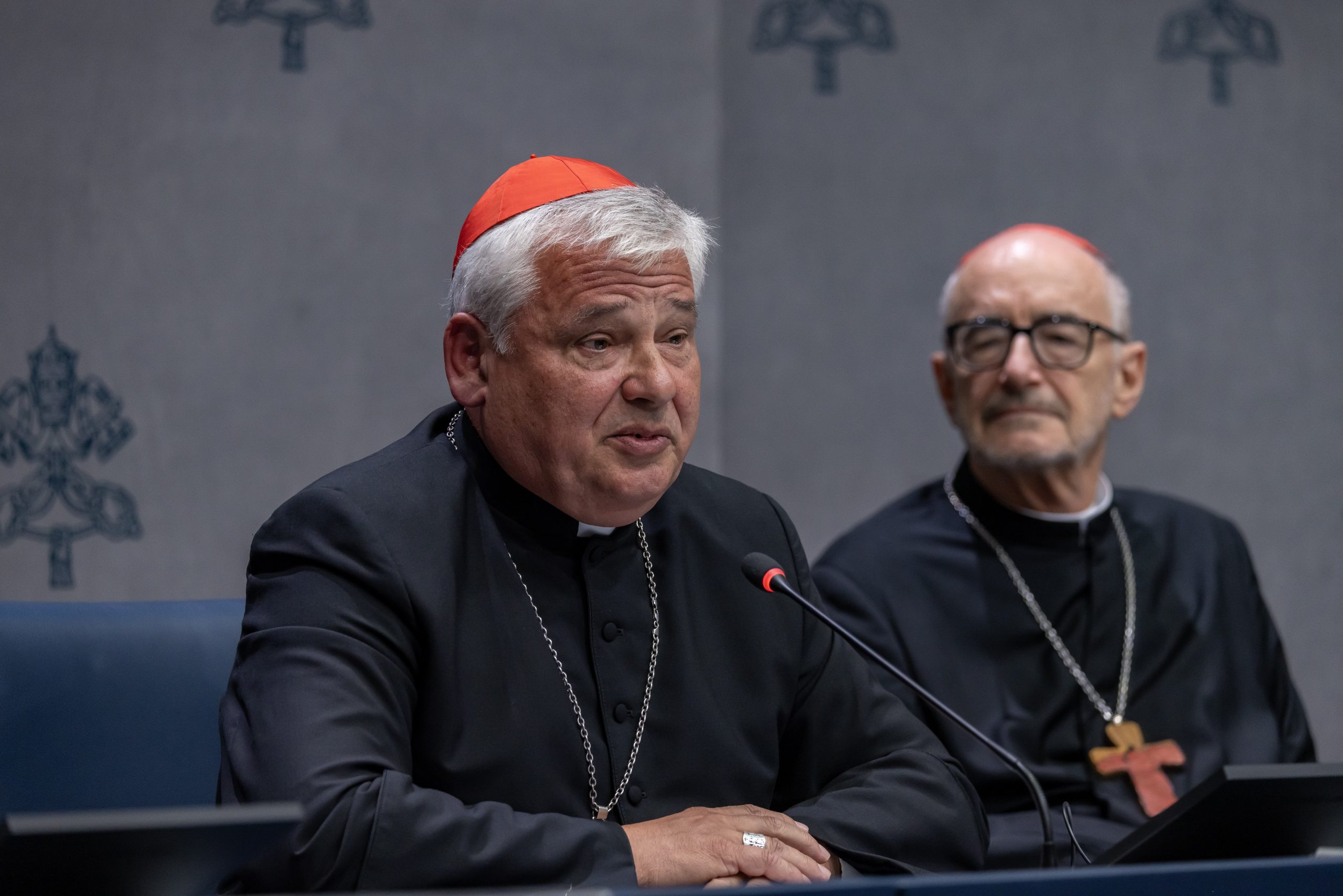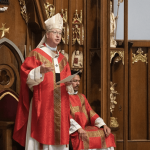OTTAWA (CCN) — Canadian Conference of Catholic Bishops (CCCB) president Pierre Goudreault lauds Pope Leo XIV’s maiden apostolic exhortation Dilexi Te (“I have loved you”) as a “great contribution to the theology of revelation of God” and “the social teaching of the Church.”
The 62-year-old Bishop of the Sainte-Anne-de-la-Pocatière diocese in Quebec took note of the word “poor” appearing in the text, begun by Pope Francis, and revised and issued by Leo, more than 350 times, “Church” over 100 times and the name of God on 97 occasions.
“It is interesting because I think those three words are really interconnected because the Church is called to reach out to the poor, to encounter the poor, and it is in the face of the poor that the people will encounter God,” said Goudreault.
Characterizing the exhortation as a missive containing “Pope Francis’ flavour with Pope Leo’s seasoning,” the native of Rouyn-Noranda, Que., noted how Dilexi Te communicated Francis’ teaching about “a poor Church for the poor.” Leo wrote this requires the “need to understand clearly that the Lord took on a flesh that hungers and thirsts, and experiences infirmity and imprisonment.”
Goudreault added that Leo also drew on his predecessor’s conviction that “education is one of the highest forms of Christian charity,” and he echoed the verbs Francis employed to describe the Church’s mission to the poor — to welcome, protect, promote and integrate.
The CCCB president identified three key contributions made by the current pontiff to Dilexi Te. The first is inviting readers to see “poverty beyond the material aspect” by alluding to “lack of a social network and moral, spiritual and cultural poverty.” The second key imprint, shared by Goudreault, is Leo’s overview of how the Church Fathers, saints and religious congregations throughout millenia have been present to the poor.
“He highlights the contribution of St. Augustine,” said Goudreault. “This is very important to him because he is an Augustinian religious. He recalls a thought of Augustine who said ‘the poor are not only people to be helped, but the sacramental presence of the Lord.’”
Third, Goudreault cited it as significant how the Bishop of Rome emphasizes texts of the Latin American episcopate, especially the Aparecida document from the Fifth General Conference of the Episcopate of Latin America and the Caribbean in Brazil, in 2007, during the papacy of Pope Benedict XVI. The future Pope Francis, then Cardinal Jorge Bergoglio, was elected by his fellow bishops to chair the committee drafting the report.
“The document recalls the importance of the Church’s mission of being with the poor,” said Goudreault. “And it’s (fitting) because Pope Leo was himself a missionary priest, a bishop in Latin America, in Peru, and he’s very sensitive to the cause of the poor and the contribution of the document (from) the Latin American Episcopal Council.”
To manifest the vision and teachings of Dilexi Te, Goudreault said it is key to encourage clergy and laity to read and study the document. Next, Canadian Catholic leadership must invite believers to follow the exhortation’s four calls to conversion. Goudreault summarized that the Pope seeks us to treat the poor with greater human dignity, see the world through their eyes, build everything “starting with those who are furthest away, poorest and smallest,” welcoming, respecting and loving migrants, refugees and the impoverished rather than viewing them as “a problem to be dealt with.”
The Catholic Register asked Goudreault how bishops and priests intend to spread the Pope’s message about migrants and refugees at a time when a majority of Canadians are now routinely stating in opinion polls that they believe too many people are being welcomed into the country.
A Sept. 30 Leger poll indicated that 60 per cent of Canadians disagree with the statement “Canada needs new immigrants.” Concerns about affordability, housing access and employment opportunities for native-born Canadians, especially younger generations, are among the chief drivers of this sentiment.
While Goudreault said “we have to be aware of the different contexts and challenges of immigration,” he echoed Dilexi Te’s call to consider migrants and refugees as people and not a problem.
“(They) are brothers and sisters in our human family that we do have to welcome,” said Goudreault. “Some of them are migrants, some others are refugees. And we do have a lot of space. We can welcome people. can hear their situation and be more aware of their challenges.”
To read the full exhortation, visit vatican.va.




